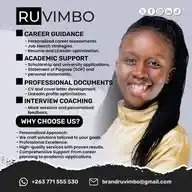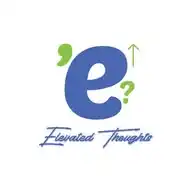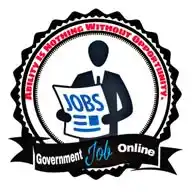
Sanya Jain - Your Grad Coach 👩🎓
1.1K subscribers
About Sanya Jain - Your Grad Coach 👩🎓
Swiss Government Excellence Fellowship Awardee, 2021 🇨🇭✨ Your go-to mentor for crafting brilliant SOPs, winning scholarships, standout CVs, and acing interviews! Ready to elevate your application? Let’s chat! 🚀👩💻
Similar Channels
Swipe to see more
Posts

Don’t forget to share the link to my WhatsApp channel with your friends & family who might benefit from my posts on scholarship applications ✨ Give this message a thumbs up 👍 if you have been liking my posts 😇

🧬 How to Write a Motivation Letter That Wins Fully Funded PhDs in Europe — Scientifically Proven Strategy Why do most applicants fail? Because their letters are either: • Overly emotional (“I have always been passionate about…”), or • Dry and generic (“I am writing to apply for…”). Neither approach demonstrates the academic salience or research fit committees are actually scanning for. 🎯 The Science of a High-Impact Motivation Letter Here’s what the latest findings in academic writing research, cognitive psychology, and selection theory tell us: 1. Relevance Signaling Admissions panels look for alignment. You must explicitly reference the faculty’s current research, not just the program. Cite a recent paper, describe a methodology you want to build on, or reference a gap you aim to investigate. 2. Narrative Logic Use an evidence-based, research-style flow: • Opening Hook: Introduce your academic identity in one sentence. • Background: Show your intellectual evolution with 2–3 high-impact academic or research milestones. • Research Intent: Explain your current interests and how they intersect with the program. • Future Contribution: Describe how you’ll add unique value to the lab or department. 3. Cognitive Priming Use advanced structuring and key phrase repetition to anchor your core ideas. Research in reading cognition shows structured repetition increases both attention and retention during academic evaluation. 4. Credibility Anchoring Back up every claim with evidence. “I am skilled in data analysis” becomes “I conducted a statistical analysis of 1,500+ data points using R and published the findings in an undergraduate journal.” 5. Goal Alignment Be crystal clear: how does this PhD fit into your academic trajectory? Show progression. Panels are trained to identify vague ambition, it’s the fastest way to be filtered out. 🧠 Reality Check ❌ A “nice” motivation letter gets polite rejections. ✅ A strategically engineered motivation letter gets interviews. Think of your letter as a research proposal in disguise, it must demonstrate clarity of thought, originality, and relevance in just one page. 🚀 Want to Work With Me? I help serious applicants turn raw drafts into precision-calibrated letters that consistently win fully funded PhD spots across Europe. 📩 DM me “PhD 2025” to get started.

🎓 How to Win a Fully Funded PhD in Switzerland in 2025 🇨🇭 ✅ Step 1: Understand the Swiss PhD Advantage Unlike the US or UK, Swiss PhD positions are paid research jobs — not study programs. That means: • No tuition fees • Monthly stipends of CHF 2,000–3,500 • Direct supervision by leading scientists • Work-life balance and residency in Europe’s innovation capital This is not just an academic opportunity — it’s a career launchpad. ✅ Step 2: Find the Right Professors — Not Just Openings Swiss professors recruit directly, often for funded research projects. The best opportunities aren’t always advertised publicly. 🔍 Do this: • Search lab websites, not just university job boards • Target professors with recent grants (ERC, SNF, Horizon Europe) • Read their latest 2–3 papers to understand their research direction 🎯 Look for alignment between your background and their active work. That’s your golden zone. ✅ Step 3: Build a CV That Shows You’re Ready A strong research CV is your first filter. Make it count. Include: • Your thesis topic, methodology, and outcomes • Relevant research experience, not just grades • Technical skills (software, lab techniques, coding) • Academic output (even conference posters or co-authored work) ⚠️ Avoid clutter. Keep it 1–2 pages. Sharp, focused, and professional. ✅ Step 4: Craft a Motivation Letter That Speaks Their Language This is not a personal essay. It’s a professional pitch. 🧠 Structure it like this: • Who you are academically • Why you’re passionate about their specific research area • What you can contribute to the lab • Why Switzerland and that university make sense for you 💡 Each letter should be customized. No templates. No clichés. ✅ Step 5: Email the Professor the Right Way Your email = your first impression. Keep it short, relevant, and intentional: • Subject: “Prospective PhD — [Your Area] — Interest in Your Work on [Topic]” • 3–4 sentence intro + 1 clear question or proposal • Attach: CV + concept note or brief research idea 📬 Professors are busy — precision = respect. ✅ Step 6: Ace the Interview If you’re shortlisted, be ready to: • Explain your research clearly and confidently • Discuss how your skills fit the lab’s needs • Propose ideas, show initiative, and ask smart questions • Demonstrate you’re not just a student — you’re a future researcher 💡 Practice matters. Swiss interviews can be rigorous but respectful. 🚀 Ready to Apply — but Want Expert Support? Most applicants send the same CV to 20 professors and hope for luck. That’s not a strategy — that’s a gamble. If you’re serious about: ✔ Finding the right labs for your background ✔ Crafting powerful CVs and letters ✔ Knowing what to say, when, and to whom ✔ Interviewing like a researcher, not a beginner 📩 DM me “SWISS PHD 2025” and let’s work together. This is your year. Let’s make it happen — strategically, confidently, and successfully.

PhD Interview Series (Day 25/30) Question: “Imagine your field didn’t exist. How would you approach your research problem from another discipline?” Purpose: To evaluate interdisciplinary awareness and flexibility in thinking. What they’re looking for: • Intellectual agility • Knowledge of other disciplines • Creativity in problem-solving How to approach it: • Identify the core challenge of your research. • Think of a field that could theoretically address that challenge. • Propose a method or perspective from that field, and explain its relevance. Sample Answer: “Without neuroscience, I would study consciousness through the lens of philosophy and comparative religion—treating subjective experience not as a biological event but as a cultural artifact. This might involve analyzing spiritual texts for cognitive models and tracing how cultures explain self-awareness.” DM if you want to work with me.👩💻

How You Can Win a Fully Funded PhD in Italy 🇮🇹 in 2025 (No Tuition, Monthly Stipend!) Yes — you can do a PhD in Europe FOR FREE, and even get paid monthly to research what you love. Italy offers some of the most accessible and generous PhD programs globally. What You Get: • 🏛️ 3–4 years of tuition-free study • 💶 Monthly stipend: €1,200–€1,600 (sometimes housing/meals included!) • ✈️ Funding for conferences, summer schools, and research abroad • 📚 Research in English — no Italian needed • 🌍 Open to all nationalities 2025 Application Timeline: • Calls open: May to September 2025 • Start date: October/November 2025 • Each university releases its own call (“Bando”) — no centralized system Documents You’ll Need: 1. Research Proposal 2. Academic CV 3. Motivation Letter 4. Transcripts & Degree certificates 5. 2–3 Recommendation Letters 6. (Sometimes) IELTS/TOEFL certificate How to Write STRONG Documents: 🔬 Research Proposal • Find exact faculty interests (read recent papers, course outlines) • Be specific, not vague — show clarity and feasibility • Include methodology, relevance to the department, and references • Show awareness of current debates in the field 🧠 Motivation Letter • Tell YOUR story: Why this topic, why this university, why now? • Link your academic journey to your future research • Be concise, confident, and authentic 📄 Academic CV • Include research, projects, publications, and skills • Highlight relevant coursework + tools (R, Python, STATA, etc.) BONUS STRATEGIES that Actually Work: 1. Contact Potential Supervisors • Send a brief email: 3–5 sentences max • Attach CV + proposal draft • Ask if they’re open to supervising your topic (Tip: Always check if “prior contact” is allowed in the call) 2. Apply Broadly • Don’t wait for “perfect fit” — academic freedom is high in Italy • Apply to 5+ programs if you’re serious 3. Use These Platforms to Track Calls • EURAXESS • PhD Italia • University websites (subscribe to their newsletters) Ready to Apply? I’ve helped multiple students prepare winning applications. DM me “PhD Italy” if you want to work with me📚✍️

Want a Fully Funded PhD in Luxembourg? Here’s How YOU Can Win It #PhDAbroad #Luxembourg #FullyFundedPhD #ScholarshipTips Yes, YOU can win a fully funded PhD position in one of Europe’s richest and most research-focused countries – Luxembourg. And no, you don’t need “connections,” perfect grades, or to study in Europe already. What you need is a strategy – and I’m here to show you exactly how. Why Luxembourg? Luxembourg offers: • Monthly salaries (not stipends!) • Low competition, high-quality research • International labs with English as the working language • Access to EU-level funding and industry collaborations So, how do YOU land one of these golden opportunities? 1. Go Beyond Google Most people never find these openings because they’re not on common platforms like FindAPhD. The real gems are buried deep in university job portals, research group pages, and EU project websites. 2. Align Yourself With a Project Don’t just send your CV—send alignment. Your motivation letter should reflect the project’s mission, methods, and expected outcomes. Show them you’ve done your homework. 3. Write Emails That Get Replies Most people write cold emails that get ignored. You’ll write emails that spark conversations. (Yes, I can help with that.) 4. Get Funded Without the Fight Unlike other countries, Luxembourg doesn’t rely heavily on competitive government scholarships. Most PhD positions come pre-funded. If you know where to look and how to apply, you’re already ahead. 5. Show Your Potential, Not Just Your Past They don’t expect perfection. They want promise. Your unique perspective, skills, and curiosity are assets – you just need to present them right. This process works. I’ve helped others secure interviews, offers, and funding – and I can guide you too. Want insider tips, templates, and proven guidance? Send me a message. I’ll show you the roadmap that turns your PhD dream into a funded reality. Don’t let opportunity pass you by while others take the leap. Be the next success story. #PhDInEurope #StudyInLuxembourg #AcademicDreams #InternationalPhD #PhDLife #ResearchOpportunity

PhD Interview Series (Day 26/30) Question: “What would you want to work on here?” It’s a stress test for clarity, depth, and direction. Faculty aren’t looking for someone to mold from scratch. They’re looking for a future colleague in the making. The most successful candidates I coach don’t just answer that question—they own it. They: • Know which PI they want to work with and why • Have read their recent papers and can build on them • Pitch a mini research vision—one that fits the lab’s direction but adds their unique angle That’s not something you improvise. That’s something you build. If you’ve got interviews coming up, and you want to sound like someone who belongs at the table—not just someone grateful to be invited—I can help you shape that strategy. DM me. Let’s turn your raw potential into a story they can’t ignore.

PhD Interview Series (Day 24/30) Question: “What’s a concept or theory in your field that you disagree with — and why?” This is the intellectual edge question that reveals if you’re ready to challenge the field, not just inherit it. Why This Question Matters PhD programs want thinkers, not followers. This question tests your critical engagement with the literature. Can you analyze dominant paradigms — and propose alternatives? Can you think against the grain, with evidence? How to Craft a High-Impact Answer 1. Pick a Concept That’s Genuinely Debatable (Not Outdated or Ridiculous) You don’t want to criticise something foundational without good reason. Choose a popular but imperfect idea in your field — something widely accepted but still controversial or context-dependent. Example (Psychology): “I think the concept of ‘grit’ is overemphasized as a predictor of success. It’s compelling, but it ignores structural barriers and reduces complex outcomes to individual persistence. I think we need to shift more attention toward environmental and systemic factors.” Example (Computer Science): “The current hype around ‘foundation models’ being universally generalizable is problematic. In practice, they often fail at localized, nuanced tasks, and they reflect deep biases that are rarely addressed.” 2. Respectfully Disagree — Don’t Dismiss This isn’t about tearing someone down. It’s about showing that you can think critically and constructively. Example: “Angela Duckworth’s work on grit opened important conversations about non-cognitive skills. But the way it’s been adopted in educational policy often ignores equity — and that’s where I see a need for more critical evaluation.” 3. Offer an Alternative or Nuance This is where you show depth. What would you do differently? Or what addition would improve the theory? Example: “Rather than replacing grit, I think it needs to be framed within a broader model that includes access to resources, mentorship, and cultural factors. I’m exploring ways to measure those alongside individual traits.” 4. Connect Back to Your Research or Philosophy Finally, link your critique to your own work or way of thinking. This is how you demonstrate scholarly identity. Example: “This perspective has shaped my approach to designing fairer assessment tools in education — ones that reflect not just effort, but opportunity and context. That’s a core goal of my doctoral research.” DM if you want to work with me on your PhD/Master’s applications 📚✍️

How to contact me for guidance on applications✨✍️ : Send me a WhatsApp message on +91 9999389760

5 fatal mistakes students make while writing PhD applications that no one ever talks about: 1️⃣ Skipping a “Theory Fit” Check 🔎 Most applicants focus on a “research fit” (similar topics), but few check if their theoretical frameworks align with the professor’s work. If a professor primarily uses quantitative modeling and your proposal is all about qualitative case studies, you’re out—even if your topics match perfectly. 2️⃣ Using “Passive Passion” Instead of “Active Contribution” 🚀 Saying you’re “deeply interested” in a professor’s work isn’t enough. Professors are looking for future collaborators, not just admirers. Instead of just mentioning their papers, demonstrate how your research can expand, challenge, or refine their findings. Show that you’re a contributor, not just a follower. 3️⃣ Relying on a Single Research Proposal Format 📑 Many students use one generic research proposal for all applications. Fatal mistake! Some universities expect a hypothesis-driven structure, while others prefer an open-ended exploration. Some want policy relevance, others care only about theory-building. One-size-fits-all gets you rejected. 4️⃣ Not Decoding the Professor’s “Unwritten Priorities” 🧩 Professors rarely state their real priorities in job posts. Some are secretly looking for candidates with strong coding skills, others prefer students who can secure external grants, and some prioritize candidates from specific geographical regions. Deep-dive into their lab website, past hires, and funding sources to crack the code. 5️⃣ Writing an “Independent” SoP Instead of a “Collaborative” One 🤝 Many students craft SoPs that highlight their own research goals but fail to tie them into the department’s ecosystem. Professors aren’t just recruiting researchers—they’re assembling teams. If your SoP doesn’t show how you’ll strengthen their existing projects, your application lacks value.












